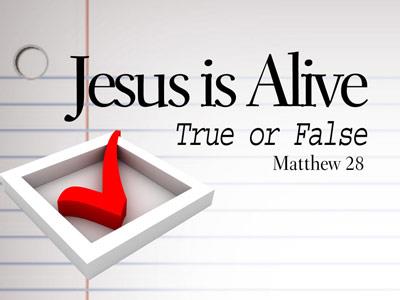-
Jesus: The Lamb Of God Series
Contributed by Mark Schaeufele on Dec 18, 2004 (message contributor)
Summary: Jesus is the Lamb of God who died in our place.
Jesus: The Word Becomes Flesh
Text: John 1:14
Introduction
A. Read John 1:14
B. A few weeks ago Newsweek magazine conducted a poll asking questions about Christ and his birth. Here are some of the results:
1. 67% - believe that the entire story of Christmas is historically accurate.
2. 24% - believe the story of Christmas is a theological invention.
C. If Jesus had not been born, people believe there would be:
1. 63% - less charity
2. 61% - less kindness
3. 59% - less personal happiness
4. 58% - less tolerance
5. 47% - more war
D. It does not matter what people believe about the birth of Christ because it is a historical fact. However, the question is what does his birth mean to us?
Thesis: Christ’s birth means that God intervened in the history of human affairs to redeem a creation that had rebelled against him.
I. The Word Became Flesh For Us
A. Became Flesh
1. There are some great similarities between our day and John’s day.
In John’s day there were a lot of opinions going around as to who Jesus was, but the problem was that most of them were wrong.
Some said Jesus was God but not man.
Others said that he was man but not God.
Still others said he became God.
Another group said that he only appeared to be a man.
2. However, John is very clear about Jesus’ nature.
In verse 1 he said, "In the beginning was the Word."
In verse 14 he says, "The Word was made flesh."
3. It is very interesting that John uses the word "flesh" to describe Jesus. In Scripture the word "flesh" can be used in one of two ways:
It can mean our carnal, sinful nature.
Romans 8:1 (KJV) There is therefore now no condemnation to them which are in Christ Jesus, who walk not after the flesh, but after the Spirit.
Or it can be used of our "flesh and bone."
4. Here John uses it as "flesh and bone." His point is clear:
Jesus didn’t become God, he is, was, and always shall be God.
But he became man.
5. 2 John 1:7 (KJV) For many deceivers are entered into the world, who confess not that Jesus Christ is come in the flesh. This is a deceiver and an antichrist.
B. The Incarnation
1. Illustration: When Dale and I were deer hunting he pointed out to me an area of his property that he had fenced off. In other words, he made a fence. What God did for us is like if Dale what to save his fence from destruction he became a fence.
2. John 3:16 (KJV) For God so loved the world, that he gave his only begotten Son, that whosoever believeth in him should not perish, but have everlasting life.
3. God loved us so much that he gave is only Son, Jesus, to come and die for our sins.
4. Jesus loved us so much that he was willing to give up everything to become like one of us.
He was willing to be born in a barn.
He was willing to take on human frailty.
He was willing to take on human suffering.
He was willing to take on human pain.
He was willing to come knowing that his end was the cross.
5. Some people like to say, "How can a loving God send people to hell?" He doesn’t send people to hell, we send ourselves. He has done everything, given up everything so that we wouldn’t have to go to hell.
Transition: Jesus, the Word, became flesh for you!
II. The Word Dwelt With Us
A. Tabernacled Among Us
1. John tells us that Jesus "dwelt among us."
2. skenoo, skay-no’-o; from Greek 4636 (skenos); to tent or encamp.
3. The figure here is from the Old Testament. The tabernacle was the dwelling-place of the LORD; the meeting-place of God and Israel. So the Word came to men in the person of Jesus.
4. Just as God’s very presence was in the tabernacle in the wilderness, God’s very presence came and lived with us in the person of Jesus.
5. He not only became like one of us, but he came and lived like one of us. He brought us the very presence of God.
B. Among Us
1. Illustration: After the tragic events of 9/11, some of the most comforting scenes that are etched in my memory are those of President George Bush at ground zero among the rescue workers giving encouragement and thanks.
2. Even more comforting is the thought that not only did God the Son become like us, but he came and he tablernacled with us.
3. He brought us his permanent presence, and the promise that he would never leave us.

 Sermon Central
Sermon Central



